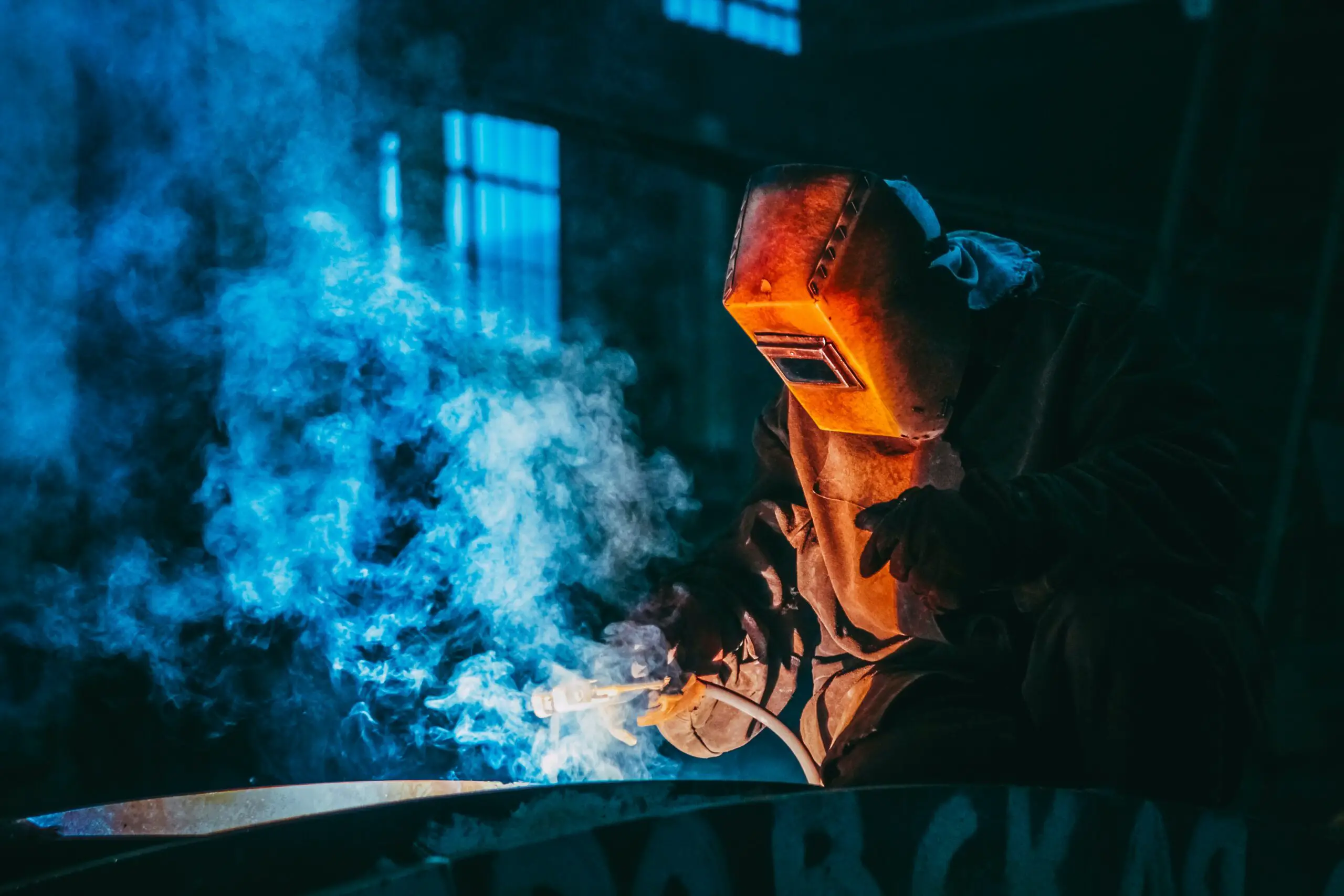Choosing a career path isn’t always straightforward.
Choosing the right career takes taking into account your personality, interests, and objectives.
If you wish to work in the trades, you have many options.
Plumbers and welders are popular professions.
When it comes to choosing a trade, the good news is that they offer job security, high earnings, and a variety of potential career paths.
However, there are some significant differences in the trades.
So, Plumber Vs Welder, Which Is Better?
Its difficult to say which occupation is better than the other. A career in Plumbing or Welding can take you to a range of businesses and locations. Plumbing and welding are both physically demanding occupations. Plumbers make more money. Welding pays well for a low-skilled entry-level career.
Both Plumbers and Welders are in high demand.
It is tough to say that being a Plumber is preferable to becoming a Welder or vice versa.
They are both trade occupations that have some similarities.
So, now that we’ve answered the major question, let’s see if it’s better to be a Welder or a Plumber.
But first, let’s talk about what a Plumber does and what a Welder does.
What does a Plumber do every day?
Plumbers work on water supply, gas, drainage, sewage, heating, cooling, and ventilation systems. They instal, maintain, and repair pipes, drains, gutters, metal roofs, mechanical services, and related equipment.
They identify the materials needed for a task, connect pipes, and test pressure to create an airtight and watertight pipe system.
Plumbers find themselves working in factories, houses, businesses, and other locations where pipes and related systems are installed.
Because plumbers are frequently on call for emergencies, evening and weekend work is usual.
Related Articles
- Mechanic Vs Plumber, Which Trade Is Better? (Solved & Explained)
- What Is It Like Being A Plumber? (Explained)
- Carpenter Vs Mechanic, Which Career Is Better? (Solved)
In terms of everyday tasks, Welders do every day?
Welders operate outside, typically in adverse weather, or indoors, sometimes in a confined location designed to keep sparks and glare to a minimum.
When working outside, they may be required to work on a scaffold or platform that is elevated above the ground.
Welding is the most widely used method of permanently connecting metal pieces.
Heat is given to metal parts in this procedure, melting and fusing them to establish a permanent bond.
Welding is employed in shipbuilding, vehicle production and repair, aerospace applications, and hundreds of other manufacturing operations due to its strength.
Welding is also employed in the construction of buildings, bridges, and other structures, as well as in the joining of pipes in pipelines, power plants, and refineries.
Plumbers or Welder, Which is a harder job?
Plumbers and welders both have difficult jobs. Common injuries include cuts from sharp tools, burns from hot pipes and soldering equipment, and falls from ladders.
Welders are in danger of harm on the job. They are frequently exposed to a variety of risks, including extremely hot materials and the brilliant light created by the arc.
Welders must wear safety gear.
Such as safety shoes, heat-resistant gloves, goggles, masks with protective lenses, and other equipment to prevent burns and eye injuries and to protect themselves from falling objects.
Below are the steps required to become either a Plumber or Welder.
How to Become a Welder? Explained)
Anyone interested in becoming a welder should have a high school diploma or equivalent, as well as technical and on-the-job training.
Formal technical training is available through high school technical education classes and postsecondary institutions such as vocational-technical institutes, community colleges, and private welding, soldering, and brazing schools.
Related Articles
- Mechanic Vs Plumber, Which Trade Is Better? (Solved & Explained)
- What Is It Like Being A Plumber? (Explained)
- Welder Or Electrician, Which Is Better Career? (Must read)
How to Become a Plumber? (Explained)
Apprenticeships are the most frequent method of learning on the job for plumbers. Some students also attend a vocational-technical school.
Most states and localities require plumbers to be licenced.
A high school diploma or equivalent is usually required to work as a plumber, pipefitter, or steamfitter.
In vocational-technical schools, students learn about pipe systems, safety, and tool use.
They also teach welding, which is required by a number of pipefitter and steamfitter apprenticeship programmes.
Most states and localities require plumbers to be licenced.
Although state and local licencing requirements differ, most states and municipalities require workers to have two to five years of experience and pass a knowledge test.
Related Articles
- Boilermaker Vs. Fitter and Turner, Which is Better Career? (Must Read)
- Welder Or Electrician, Which Is Better Career? (Must Read)
- Carpenter or Plumber, Which is Better Career? (Must Read)
Plumber or Welder, who earns more? (Solved)
Plumbers earn slightly more than Welders, with Plumbers earning $56,330 in May 2020 compared to $48,420 for Welders. These earnings, however, will differ from state to state.
Final Thoughts
It’s difficult to say one occupation is better to the other. Plumbing and welding careers can lead you to a variety of firms and locations. Both plumbing and welding are physically hard jobs. Plumbers earn a higher wage. Welding is a well-paying low-skilled entry-level job.
At the end of the day, whether you want to be a Plumber or Welder is a personal choice.
If you prefer working on automobiles to digging holes and dealing with human faeces, becoming a mechanic may be a better fit.
If you prefer manual labour, you might want to consider becoming a plumber.
If you’re interested in learning about other trades check out these articles below
Related Articles
- What Is It Like Being A Plumber? (Explained)
- Electrician Vs Mechanic, Which Career is Better? (Explained)
- Plumber Vs Electrician, Which One Is Better? (Solved & Explained)
References
- Plumbers, Pipefitters, and Steamfitters: Occupational Outlook Handbook:: U.S. Bureau of Labor Statistics (bls.gov)
- Welders, Cutters, Solderers, and Brazers: Occupational Outlook Handbook:: U.S. Bureau of Labor Statistics (bls.gov)


